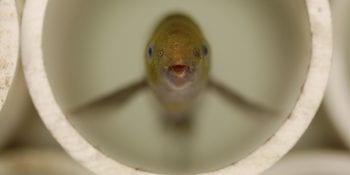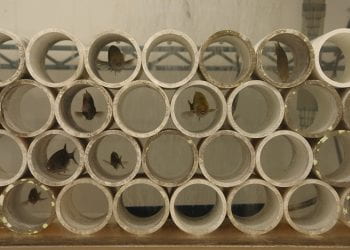During the rainy breeding season, the underwater “conversation” among electric fish changes. Fish revved up to make a match broadcast slightly different signals to advertise their presence and identify compatible mates. New research from Washington University in St. Louis shows that the hormone testosterone — which naturally triggers male electric fish to elongate the electric […]
Hormone alters electric fish’s signal-canceling trick




